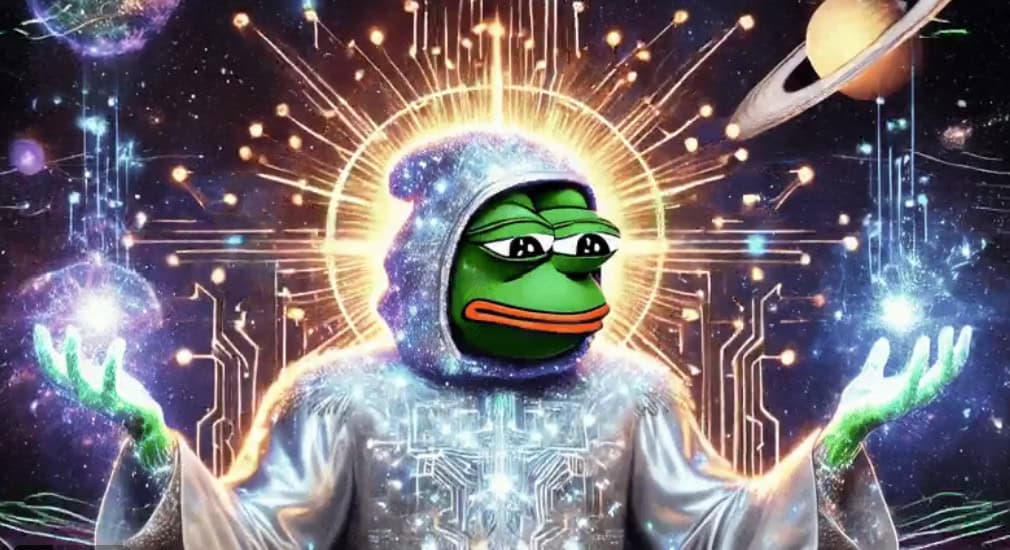
Mind Of Pepe™ | Official Website
Mind of Pepe: An Exploration of Cultural Phenomena
Introduction
"Mind of Pepe" is a concept that has emerged from the intersection of internet culture, memes, and the broader socio-political landscape. The character Pepe the Frog, created by cartoonist Matt Furie, has evolved from a simple comic strip figure into a complex symbol that embodies various meanings, emotions, and ideologies. This overview examines the origins of Pepe, the transformation of his image, and the implications of the "Mind of Pepe" in contemporary culture.
Origins of Pepe the Frog
Creation: Pepe the Frog first appeared in 2005 in Matt Furie’s comic "Boy's Club." The character was initially portrayed as a laid-back, friendly frog who enjoyed life with his friends. The comic resonated with audiences, leading to Pepe's rise in popularity.
Early Memes: Pepe's image began to circulate on the internet, particularly on platforms like 4chan and Reddit. Users started to create various iterations of Pepe, attributing different emotions and contexts to the character. This led to the creation of numerous memes, such as "Feels Good Man," which captured a sense of contentment and carefree living.
The Evolution of Pepe
From Innocence to Controversy
Co-optation by Extremist Groups: As Pepe gained popularity, certain factions within internet communities began to repurpose his image for political and extremist agendas. By the 2010s, Pepe had been co-opted by alt-right groups and became associated with hate speech, racism, and other negative ideologies.
Media Attention: The transformation of Pepe into a symbol of hate drew significant media attention, particularly during the 2016 U.S. presidential election. Various news outlets reported on the character's appropriation, prompting discussions about the implications of internet culture and meme warfare.
Matt Furie's Response
Defending Pepe: Matt Furie expressed dismay over the co-optation of his character. He launched campaigns to reclaim Pepe, emphasizing the original, positive meanings associated with the character. Furie sought to distance Pepe from the negative connotations that had emerged, advocating for a return to the character's roots.
Legal Actions: Furie took legal action against individuals and organizations using Pepe’s image for hate speech, attempting to protect the character’s integrity and original intent.
The Mind of Pepe: Symbolism and Interpretation
A Reflection of Internet Culture
Memes as Communication: The evolution of Pepe underscores how memes serve as a form of modern communication. Memes encapsulate complex ideas and emotions, allowing users to convey messages quickly and effectively. Pepe's various iterations reflect a wide range of feelings, from joy and sadness to anger and frustration.
Cultural Commentary: Pepe has become a canvas for cultural commentary, with users employing the character to critique social norms, political situations, and personal experiences. The adaptability of Pepe’s image allows for diverse interpretations, making him a versatile symbol in the meme economy.
Psychological Dimensions
Collective Consciousness: The "Mind of Pepe" can also be seen as a representation of collective consciousness. As users interact with Pepe memes, they contribute to an evolving narrative that reflects societal sentiments. This collective engagement creates a shared understanding of emotions and experiences.
Identity and Anonymity: The anonymity of internet culture allows individuals to explore aspects of their identity through memes. Pepe serves as a relatable figure, enabling users to express their thoughts and feelings without fear of judgment. This anonymity fosters a sense of community among meme creators and consumers.
Societal Implications
The Power of Memes
Political Influence: The rise of Pepe as a political symbol illustrates the power of memes in shaping public discourse. Memes can influence opinions, mobilize movements, and even impact elections. The ability to convey complex ideas in a simple format makes memes a potent tool for political communication.
Censorship and Free Speech: The controversy surrounding Pepe raises questions about censorship and free speech in the digital age. As certain uses of Pepe are deemed harmful or offensive, discussions about the boundaries of expression and the responsibility of platforms come to the forefront.
Cultural Polarization
Divisive Symbolism: Pepe’s dual nature as both a symbol of innocence and a representation of hate reflects the polarization of contemporary culture. The character’s appropriation reveals deep societal divides, prompting conversations about identity, ideology, and the consequences of online behavior.
Reclamation Efforts: The efforts by Matt Furie and others to reclaim Pepe highlight the struggle against the negative connotations attached to cultural symbols. This reclamation process emphasizes the importance of context and intent in understanding cultural phenomena.
The Future of Pepe
Continued Adaptation
Memetic Evolution: Pepe will likely continue to evolve as a meme, reflecting changing cultural landscapes and societal sentiments. As new generations engage with internet culture, they will reinterpret Pepe in ways that resonate with their experiences.
New Platforms: The emergence of new social media platforms and communication tools will influence how Pepe is used and perceived. As users migrate to different spaces, the context in which Pepe exists will shift, potentially leading to new meanings and associations.
Legacy and Reflection
Cultural Artifact: Pepe the Frog has become a cultural artifact that encapsulates the complexities of internet culture. His journey from a simple comic character to a multifaceted symbol mirrors the rapid evolution of digital communication.
Lessons Learned: The "Mind of Pepe" serves as a case study in the power of memes, the implications of cultural appropriation, and the importance of context in shaping meaning. As society navigates the challenges of the digital age, the lessons learned from Pepe's story will remain relevant.
Conclusion
The "Mind of Pepe" represents a rich tapestry of cultural significance, emotional expression, and societal implications. From his innocent origins to his controversial appropriation, Pepe the Frog has become a powerful symbol in the digital landscape. As memes continue to evolve and shape public discourse, the legacy of Pepe serves as a reminder of the complexities inherent in modern communication. Understanding the journey of Pepe is essential for navigating the future of internet culture and its impact on society.